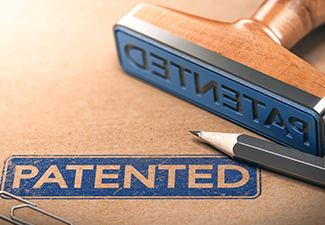When Does an Invention Qualify as “Useful?”
April 14, 2023
 If you’re an expert or innovator in your field and you come up with a new idea or tool, you’ll naturally want to protect this and find a way to benefit from your creation. This is most often done through the use of trademarks, copyrights, and patents which are all issued by the federal government, serving slightly different purposes.
If you’re an expert or innovator in your field and you come up with a new idea or tool, you’ll naturally want to protect this and find a way to benefit from your creation. This is most often done through the use of trademarks, copyrights, and patents which are all issued by the federal government, serving slightly different purposes.
Of these, patents are the most commonly used, but obtaining a patent can be a long and difficult process. It can be hard for inventors to fully understand the patent requirements and know whether their specific innovation meets the criteria.
If you believe you have a new and useful invention, but would like help pursuing a patent, reach out to my firm at the Law Office of Julie Scott LLC. From my home offices in Kansas City, Missouri I can represent clients throughout the area including Columbia, Springfield, and Rolla. Call me today to schedule a consultation.
Patent Requirements
Before you begin the application process, it’s important to understand the basics of patent law and patent requirements. To start with, there are three different types of patents issued: utility, design, and plant.
A utility patent is by far the most common and to qualify it must meet three requirements:
The first is that it’s useful in some way, and this is often referred to as its “utility.”
The second is that it must be novel, meaning it’s a new idea that no one has come up with before.
The third is that it must be nonobvious, meaning that someone who’s in the same field as you wouldn’t easily think of doing the same thing. Utility patents can cover a range of inventions, including processes for creating a product, machines, an article of manufacture, a chemical composition, or a significant improvement on an invention that’s already in existence.
For pursuing a design patent you must also meet the criteria for being nonobvious and being novel, but design patents do not have to meet the “usefulness” requirement. Examples of design patents could be jewelry, computer fonts, shoes, or furniture.
Lastly, a plant patent is usually reserved for asexually propagating new plants, such as splicing two types of apple trees together to produce a wholly new variety.
What Makes an Invention “Useful?”
Perhaps the most confusing part of deciding whether or not you’ll qualify for a patent is being able to understand, and then prove, what makes an invention useful. The utility requirement is definitely the hardest to meet and defend. Essentially, you’ll need to be able to prove that your invention has an immediate usefulness that’s been backed up with research. However, defining what is and isn’t “useful” can be tricky and you’ll need to lay out your explanation thoroughly when you apply with the U.S. Patent and Trademark Office (USPTO).
The usefulness also doesn't have to be profound; even a small benefit can meet the requirements. There are also several interpretations of what’s considered useful, and it doesn’t always mean that the product has to do something tangible. A new invention can pass the usefulness test by simply providing pleasure or humor to the user.
Furthermore, your invention can also meet the usefulness bar, even if it’s not fully functional yet. For example, if you’re trying to patent a machine that has a proven theoretical and scientific basis, but hasn’t actually been made yet, you may still be awarded a patent based on the future usefulness of it.
How a Patent Attorney Can Help
Throughout this entire process, most inventors find it necessary and helpful to work with a patent attorney. After all, the inventor’s field of specialization isn’t patent law and though they may be an expert in engineering, computer science, or manufacturing, they won’t know the minute details of the application process and the exact type of language and evidence that must be used to prove usefulness.
Although federal law doesn’t require you to use an agent or attorney to file a patent claim, the USPTO does recommend it. With a lawyer, you can improve your chances of approval the first time around because they’ll have gone through the process many times with other clients and will have a detailed understanding of the wording to use and how to prove your invention meets the three major criteria.
Writing a patent application can be very difficult, and you’ll also want to protect your invention from future infringement. A well-written patent application won’t be able to stop your competition from trying to one-up you, but it will provide you with solid legal groundwork to defend your ideas and can make it harder for your competition to design around your invention.
Dependable Legal Assistance
If you think you have an invention that meets patent requirements, but you aren’t sure how to proceed with the application process, call me today to get started. I serve those in the Kansas City, Missouri and surrounding area, including Columbia, Springfield, and Rolla. Don’t face this alone.
